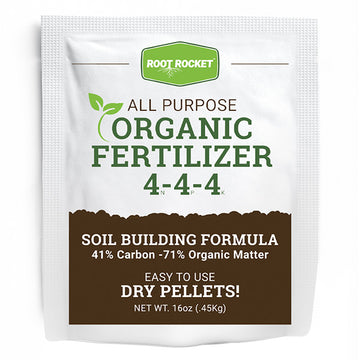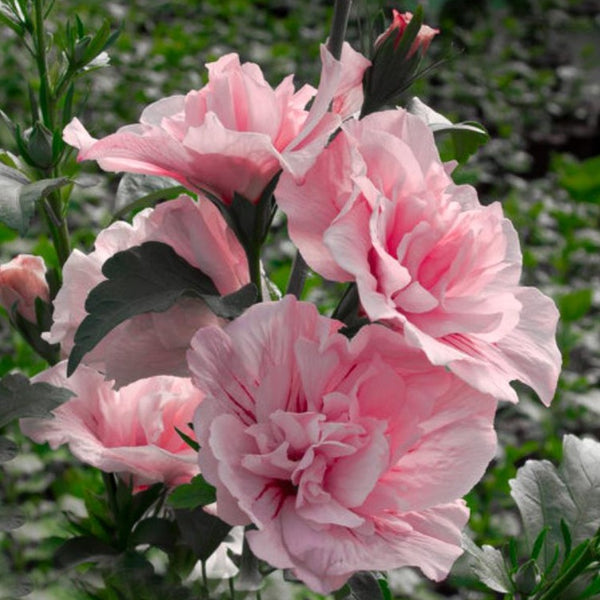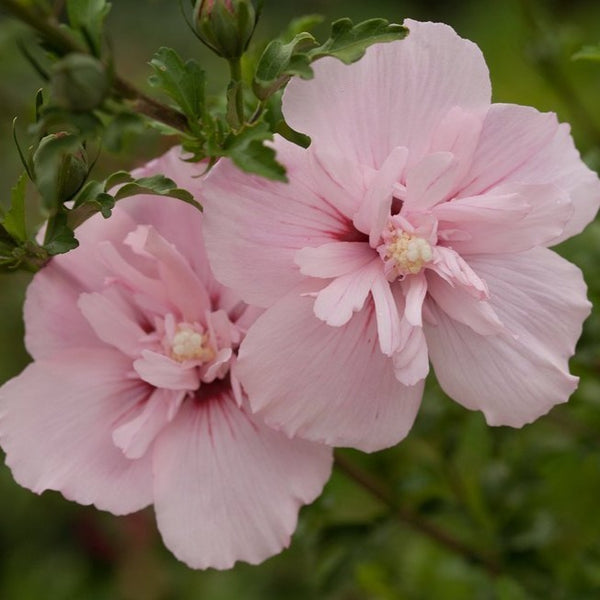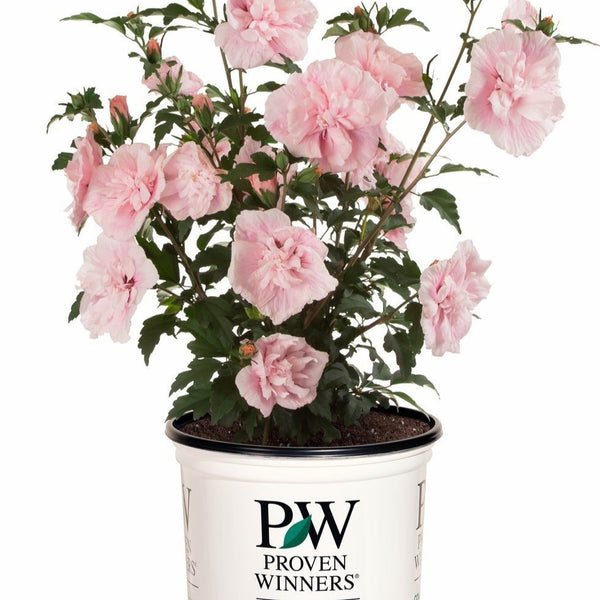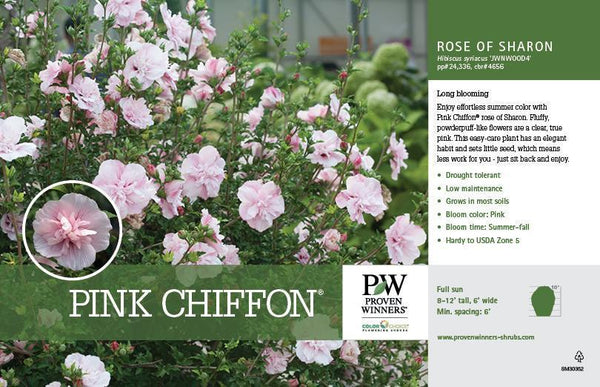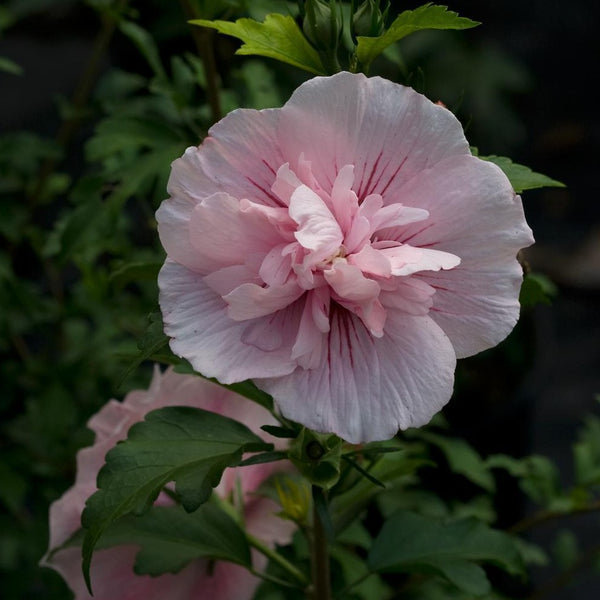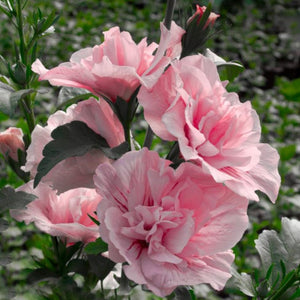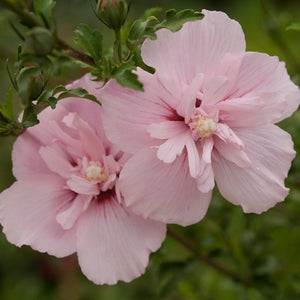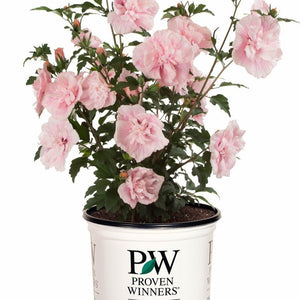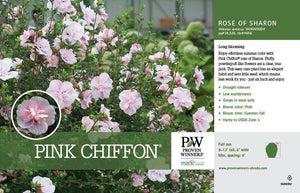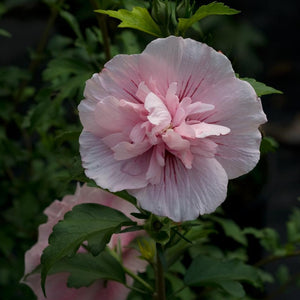Pink Chiffon Rose of Sharon
Product Details
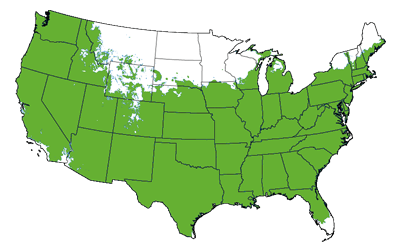 Growing Zones 5-9
Growing Zones 5-9
| Soil Type | Adaptable |
| Sunlight | Full, Partial |
| Drought Tolerance | Good |
| Mature Height | 6-10 Feet |
| Mature Width | 5-6 Feet |
| Fall Color | Green |
| Bloom Color | Pink |
| Shipping Restriction | AZ, OR |
Looking for a super cool, easy-to-grow Hibiscus with a pink flower? Check out the Pink Chiffon® Rose of Sharon!
The Pink Chiffon® Rose of Sharon is a versatile shrub that is perfect for your landscape. This Hibiscus looks amazing as a single specimen or planted in groups for extra color. Plant in masses for a nice privacy screen that flowers.
The Pink Chiffon® Rose of Sharon Hibiscus attracts butterflies! Its large, midsummer blooming, light pink flowers are unforgettable to humans and butterflies!
The Pink Chiffon® Rose of Sharon Hibiscus is easy to grow, deer resistant, and attracts butterflies!
Whether you are new to gardening or a lifelong gardener you are sure to love the Pink Chiffon® Rose of Sharon.
When Should I Prune A Pink Chiffon Rose Of Sharon?
This shrub doesn't generally need to be pruned but pruning and removal of unwanted limbs can be done in late winter or early spring.
When Does This Shrub Bloom?
Expect beautiful blooms from this flowering shrub from midsummer to the fall season.
What Are Good Companion Plants For This Rose Of Sharon?
Phlox, lavender, and lilies are great to pair with this shrub in mixed garden beds.
When planting your Pink Chiffon® Rose of Sharon be sure you have the right location and conditions for your new plants to thrive. Spring and Fall are ideal times to plant this shrub, but as long as you avoid extreme temperatures, especially in mild climates, you can plant throughout the year.
Planting
The Pink Chiffon® Rose of Sharon requires full sun and is adaptable to a variety of well-drained soils.
Mulching 2-3 inches deep is recommended for hibiscus. Mulching will cut back on watering needs, prevent weeds, and protect your plant in extreme temperatures.
Watering
Keep the soil moist, but not saturated, especially in summer and in the first few months after planting. If you encounter flower drop or only a small crop of flowers it is more likely to be a lack of water than it is a lack of fertilizer.
Fertilizing
Choose a balanced slow-release fertilizer, like what we carry. Fertilize once in spring after the last chance of frost and again in midsummer for best results. If you have a nutrient rich soil, skip the midsummer dose of fertilizer. Avoid over fertilizing your Hibiscus. This can cause blooms to never open and even encourage aphids, one of the few pests of Hibiscus.
Maintenance
You don’t need to prune this Rose of Sharon, but of you need to remove dead or crowded branches or control size prune in late winter or early spring.
The best way to prevent disease and pests is by providing the appropriate care for your plants. Proper location choice, watering, and fertilization are the keys to your success. You can treat aphids and whitefly naturally with neem oil or insecticidal soap. For severe infections you can use pesticides like carbaryl, also known as Sevin. Fungal infection can be prevented by making sure the planting site has good drainage and by avoiding overhead watering. Fungal infections can be treated with a fungicide. Generally, treating fungal issues after infection isn't effective so if you have problems in a prior year, treat preventatively in early spring.
Not only does this shrub look great in a mass planting, hedge, or border, it is also very graceful as a lone specimen or focal plant. Plant 4 feet apart for a nice hedge. Use for its perfect pink color and pretty upright habit in a cottage garden or mixed bed. Mixes well with Blue Chiffon Rose of Sharon.
Learn when to prune your flowering shrubs.
For additional options, be sure to browse our Hibiscus collection.
*This perennial is not eligible for our year warranty.

